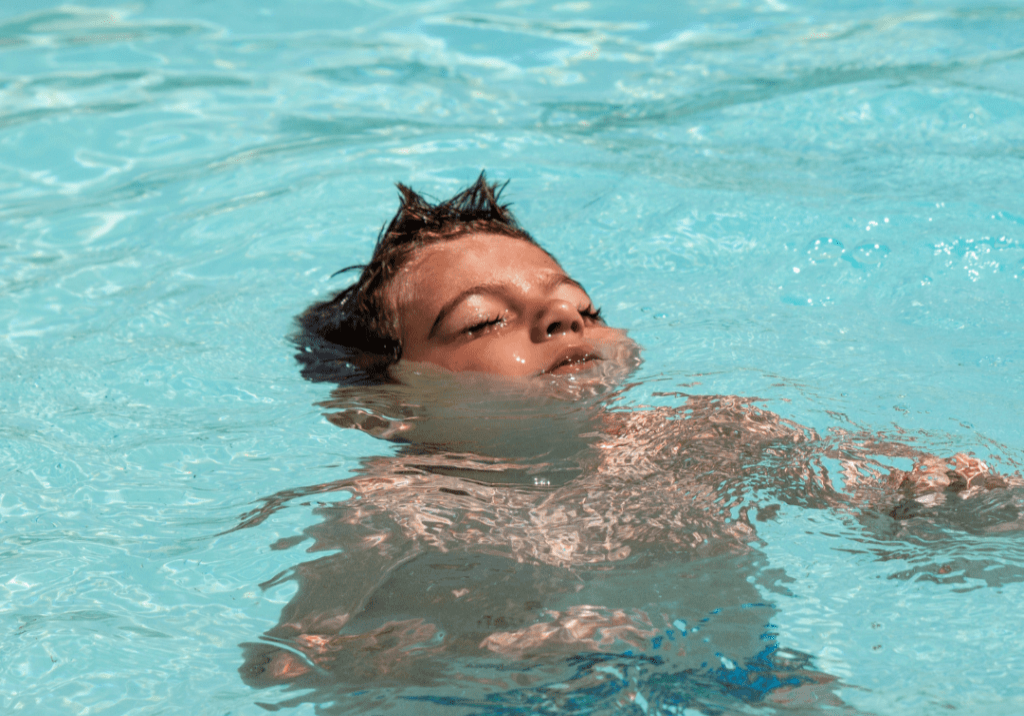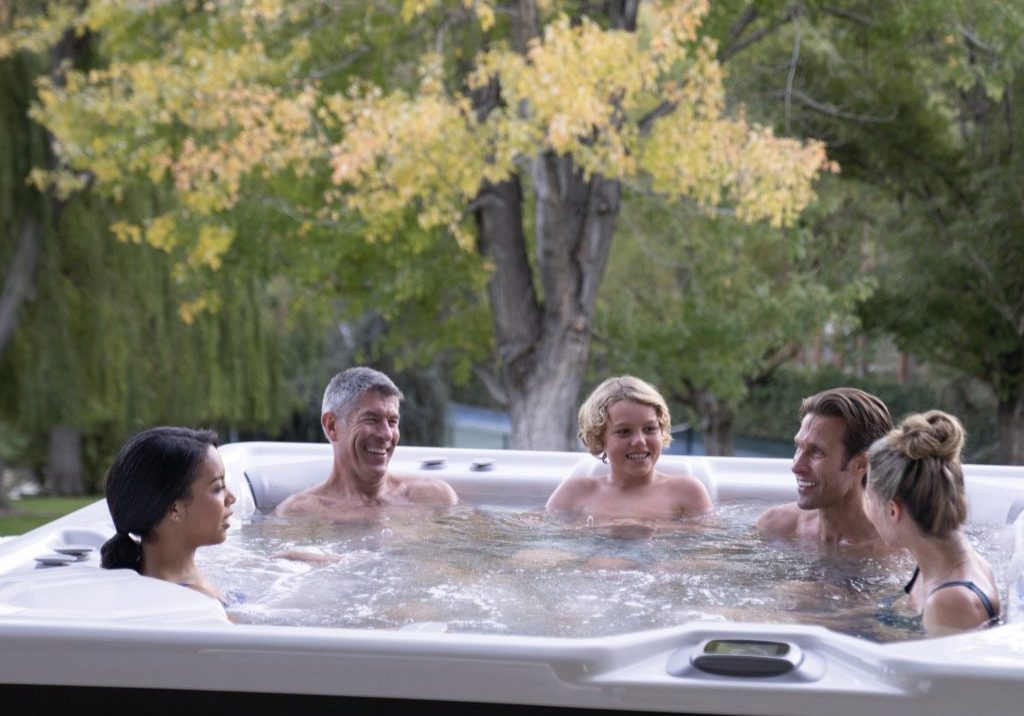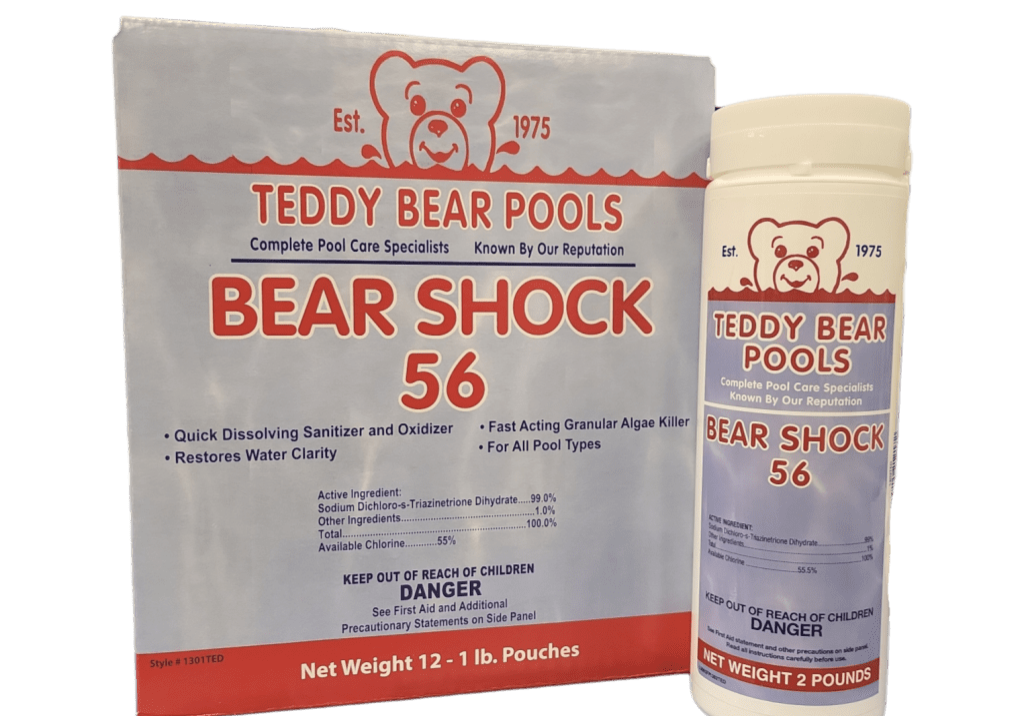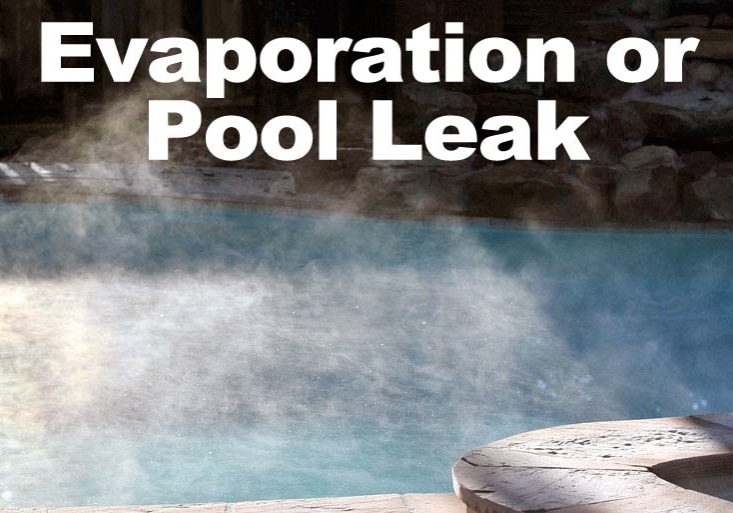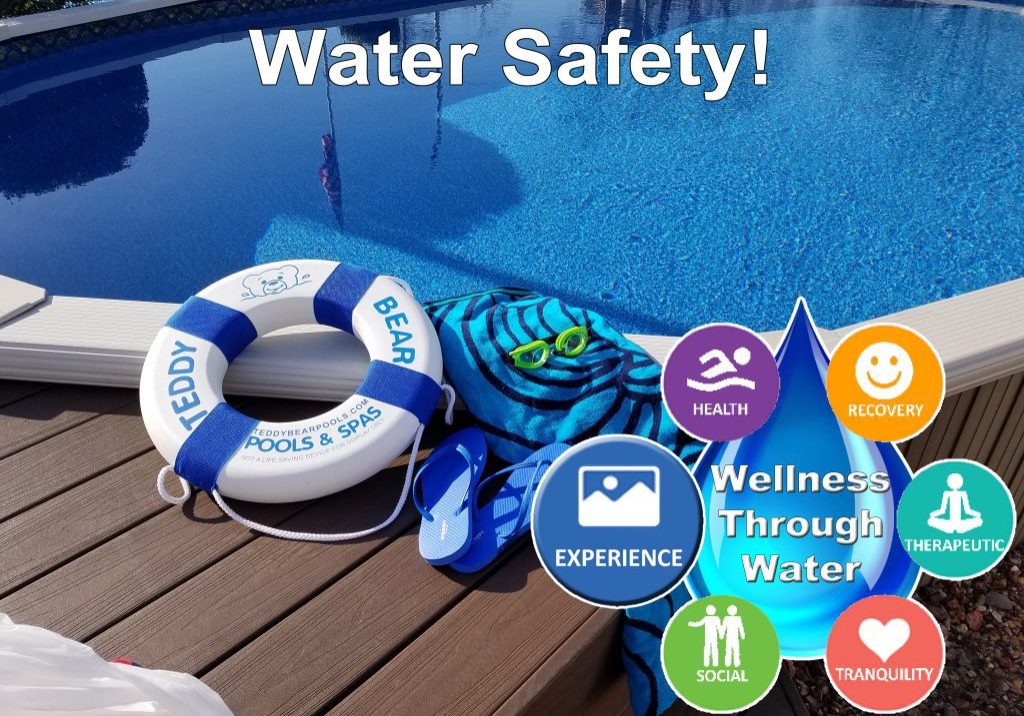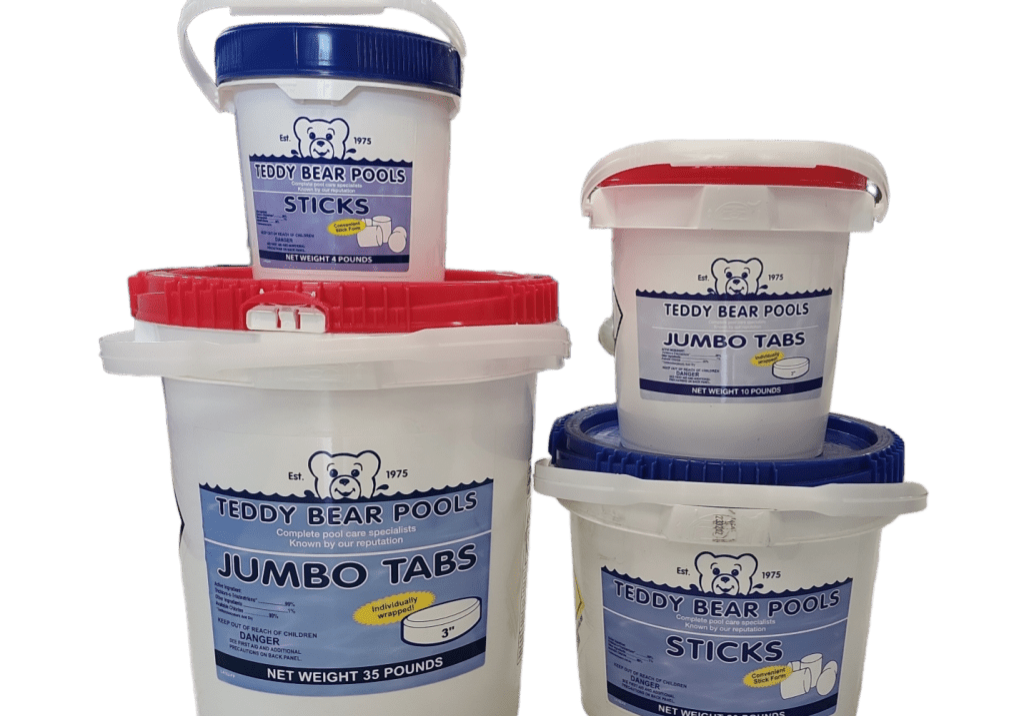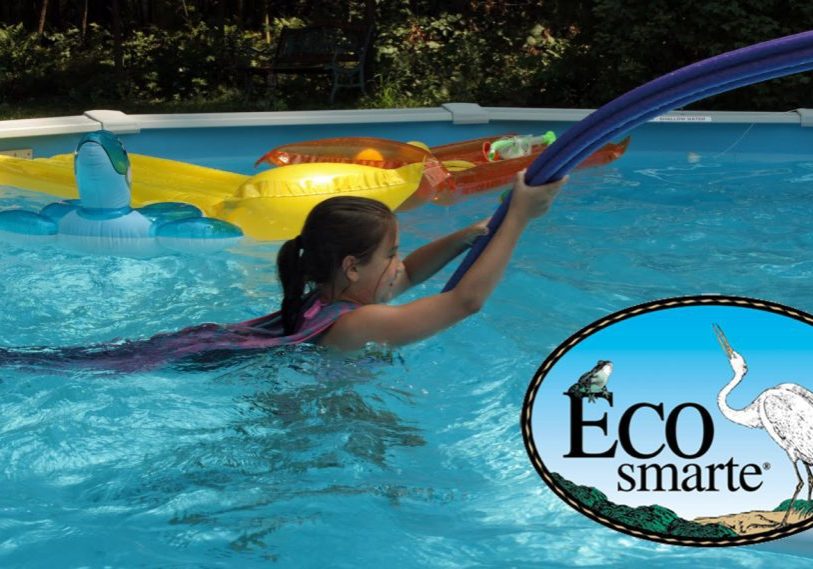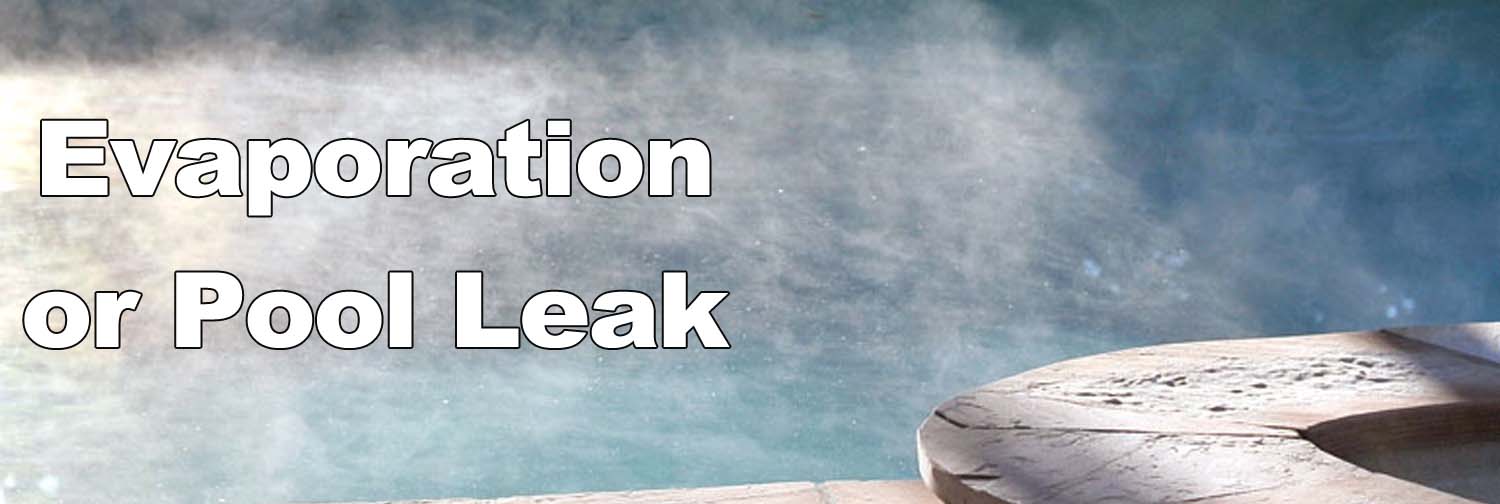
Evaporation or Pool Leak
Evaporation from a swimming pool is a natural process in which water molecules at the pool's surface gain enough energy to transition from the liquid state to the gaseous state (water vapor). This process occurs due to the kinetic energy of the molecules and the temperature of the water. Here are some important points to consider regarding evaporation from a swimming pool:
Factors Affecting Evaporation:
Temperature: Higher temperatures increase the energy of water molecules, leading to faster evaporation.
Humidity: Lower humidity levels create a larger difference in water vapor concentration between the pool's surface and the surrounding air, enhancing evaporation.
Wind: Wind blowing across the pool's surface helps to remove water vapor, increasing the rate of evaporation.
Surface Area: Larger pools have more surface area, allowing for more water molecules to be exposed to evaporation.
Effects of Evaporation on Pool Water:
Water Loss: Evaporation causes a gradual loss of water from the pool over time.
Chemical Concentration: As water evaporates, the concentration of chemicals in the pool water, such as chlorine and other sanitizers, can increase. Regular testing and adjustments are necessary to maintain proper water chemistry.
Preventing Evaporation:
While it's not possible to completely prevent evaporation, you can take measures to reduce its effects:
Pool Solar Covers: Using a pool cover when the pool is not in use can significantly reduce evaporation by preventing direct contact between the water and the air.
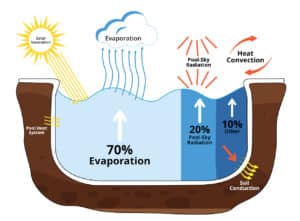
Windbreaks: Installing windbreaks or fences around the pool area can reduce the impact of wind, which accelerates evaporation.
Conserving Water:
Regular Maintenance: Keeping the pool well-maintained can reduce the need for frequent refilling due to water loss.
Efficient Pool Equipment: Using energy-efficient pumps and filters can help minimize water usage.
Evaporation or Pool Leak:
Be aware evaporation can account for up to ½” a day. If you feel you are losing water Teddy Bear Pools & Spas recommends doing a bucket test. What you will need is 2 pieces of electrical tape and a five-gallon bucket. To do this test, fill the 5-gallon bucket with water with in a inch of full and place near the pool (you can use the pool water). Place a piece of electrical tape on the water line. Place the second piece of electrical tape on the pool water line. Let the buck sit next to the pool for 24 hours. If the buck loses the same amount of water as the pool it is evaporation, however it the pool loses more then the bucket you may have a leak in your pool.
It's important to note that some level of evaporation is unavoidable, especially in warmer and drier climates. Regularly monitoring the water level and maintaining proper water chemistry are essential to ensure the longevity and health of your pool while managing water loss through evaporation.
Come in and see us at Teddy Bear Pools & Spas and let us show you Wellness Through Water!

